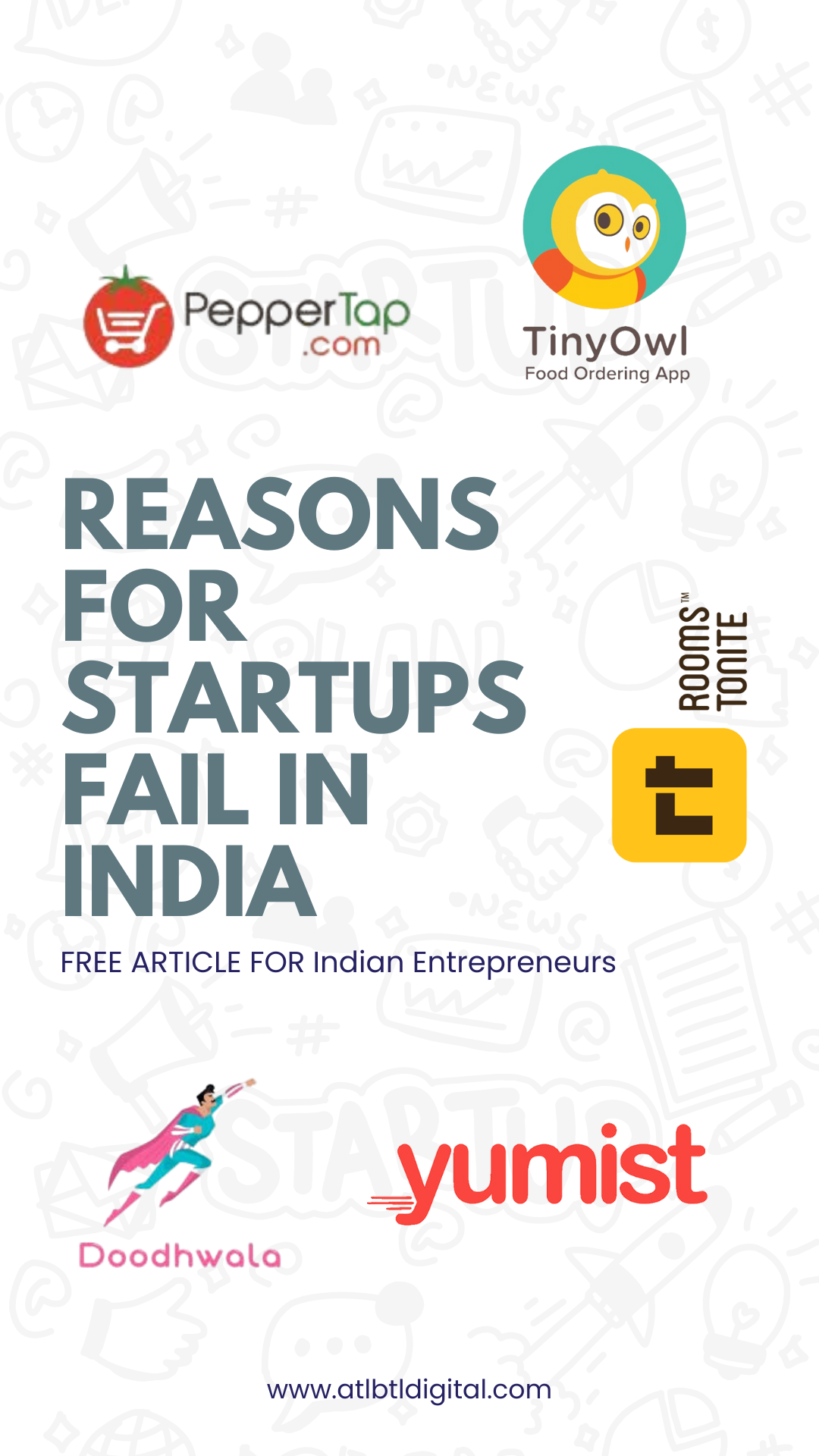Reasons for Startups Fail in India


India has emerged as a hotbed for startups, boasting a vibrant ecosystem fueled by innovation, technology, and entrepreneurial spirit. However, despite the enthusiasm, many startups struggle to survive. Drawing from my personal experiences, I’ve seen firsthand why some ventures succeed while others falter.
My name is Anurag Singh, and I’ve had the opportunity to witness the rise and fall of various startups over the past decade. One notable example is TinyOwl, a food startup that began scaling rapidly from a small flat in Koramangala to multiple cities within nine months. Unfortunately, the scarcity of investments led them back to where they started, eventually shutting down. On the other hand, I observed how Licious learned from its initial Below-The-Line (BTL) marketing mistakes and successfully reached its target audience through Above-The-Line (ATL) campaigns. The reasons for these failures can be attributed to common pitfalls that entrepreneurs often fall into. Here, we explore these issues, using some colourful expressions to capture their essence.
Startups often aspire to scale rapidly, expanding to multiple cities within months or a year. This “harbadi” (hurry) can lead to overextension, where the company stretches its resources too thin. Rapid expansion without a solid foundation can result in operational inefficiencies, compromised service quality, and ultimately, a loss of customer trust. Sustainable growth requires a well-thought-out strategy, focusing on strong local operations before scaling up.
Constantly thinking about investments and exit strategies is another common issue. While securing funding is crucial, an obsessive focus on raising more capital and planning exits can distract from core business operations. Startups need to balance financial planning with product development, market research, and customer engagement to build a robust business model that can attract investors naturally.
Neglecting innovation and customer engagement can be a death knell for startups. Continuous innovation is essential to stay competitive, and customer feedback is invaluable for product improvement. Companies that fail to innovate or engage with their customers risk becoming obsolete or out of touch with market needs. Regularly seeking and acting on customer feedback helps in refining products and services to meet evolving demands.
Many startups operate under the misconception that they can only succeed if they conduct business in English. While English proficiency is advantageous, especially in urban markets and for attracting international investors, neglecting local languages can alienate a significant portion of the customer base. Embracing multilingual strategies can enhance market penetration and customer loyalty in diverse linguistic landscapes.
Involving family members in the startup, not to run but to rule the company, is another common mistake. While family businesses can thrive with the right dynamics, nepotism often leads to inefficiency and discord. Professional management, clear roles, and merit-based appointments are crucial for maintaining objectivity and fostering a productive work environment.
A fixation on paid PR and media engagement can also derail a startup’s focus. While visibility and branding are important, excessive spending on PR without a substantive product or service to back it up can lead to a hollow image. Authentic growth comes from delivering real value to customers, which naturally generates positive word-of-mouth and organic media coverage.
The startup ecosystem in India is brimming with potential, but success requires navigating these common pitfalls. Entrepreneurs must focus on sustainable growth, balanced financial planning, continuous innovation, customer engagement, linguistic inclusivity, professional management, and authentic branding. By addressing these challenges head-on, startups can enhance their chances of not just surviving but thriving in the competitive market.